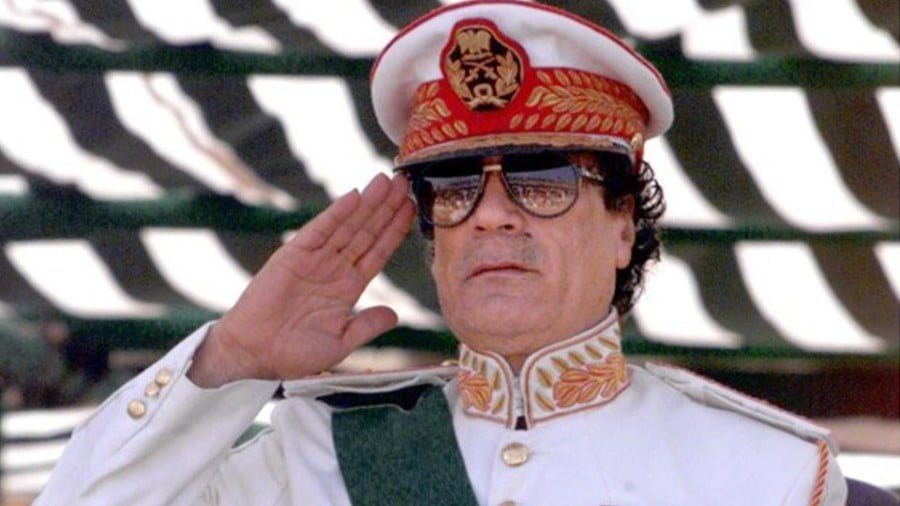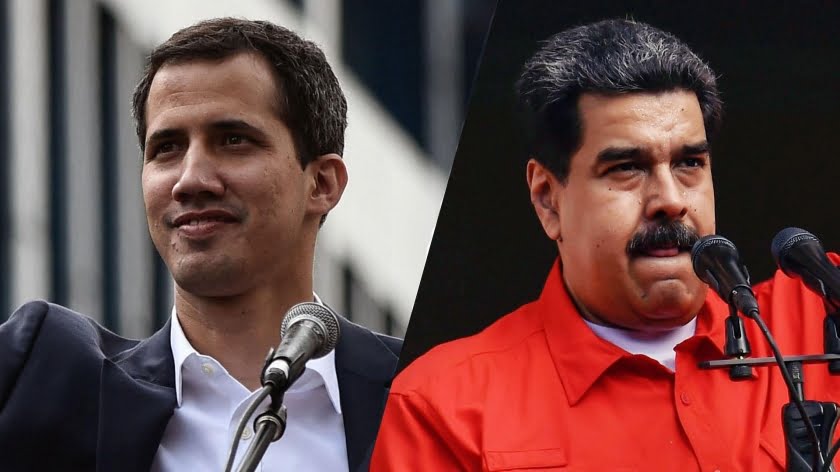Russia’s New Outlook on Libya: Foreign Intervention was Bad But Gaddafi’s Overthrow was an Internal Affair
The two-day conference on “Russia in the Middle East: Playing on all Fields” that was hosted by Russia’s elite Valdai Club saw the annunciation of a strikingly new policy towards Libya, one which replaces Moscow’s previous stance of condemning Gaddafi’s ouster with “pragmatically” “accepting” it as an internal affair.
Lev Dengov, the Head of the Russian Contact Group for intra-Libyan Settlement, elaborated on this newfound approach by explaining that while Moscow opposed foreign intervention in the country’s conflict, it nevertheless regards the overthrow of the Jamahiriya’s former leader as strictly pertaining to the desire of the Libyan people themselves.
So as not to put words into this high-ranking official’s mouth, here’s the exact statement as reported on the think tank’s website:
“Answering the question about why it was necessary to liquidate the Gaddafi regime, which provided a certain stability, Dengov pointed out that it would be wrong to idealize his rule. According to him, there are different views on how effective the Gaddafi regime was for the population. Recalling that for 42 years of his reign in in Tripoli was built only one hospital and one university, Dengov said that Gaddafi could do much more for the Libyan people. And, although Russia does not agree with the foreign intervention, the overthrow of his regime is primarily a matter of the Libyans themselves.”
What Russia has effectively done is “moderate” its erstwhile total resistance to Gaddafi’s forcible removal and transitioned towards a more “understanding” position in line with the current on-the-ground power reality in the country, thus embodying yet another example of its “19th-Century Great Power Chessboard” Neo-Realist paradigm in action.
The author describes this approach towards global affairs as being the prioritization of Russia’s relations with its similarly sized Great Power peers at the perceived (key word) expense of its medium- and smaller-sized partners (whether countries or their leaders) for the “greater good” of facilitating the emerging Multipolar World Order of international systemic “reform”.
This has seen Russia become unprecedentedly “flexible” in its foreign policy by finally unshackling itself from the legacy of Soviet-era ideological “dogmas” in order to more adroitly take advantage of rapidly changing events all across the world.
In this instance, Moscow must have concluded that it has considerably less to gain among the actors that truly count nowadays in Libya by “glorifying” Gaddafi like it once did than if it “went with the flow” of “accepting” that the most powerful people there today (though not necessarily the average person) despised his rule at the time and that’s why they went along with the foreign-backed Hybrid War regime change against him.
General Khalifa Haftar, a former CIA asset who lived in the US for decades after fleeing from his one-time boss, has since become very close to Russia, and Moscow thinks that its interests in Libya are better advanced by “legitimizing” this militarily effective anti-terrorist “warlord” than “questioning” the very reason why he rose to such a prominent position of power in the first place.
In keeping with its unwavering commitment to international law, Russia felt compelled to criticize the direct intervention of foreign forces during the 2011 NATO War on Libya, but it’s visibly come to “accept” that there is no going back to the prewar years and that the only way to make “progress” now is to work with the country’s most influential player.
That’s why Moscow decided to “tweak” its long-standing position towards Libya in order to send General Haftar a symbolic message of its sincere support for his possible candidacy in the country’s upcoming elections or at the very least the “grey cardinal” role that he might play afterwards.
Although Dengov probably didn’t intend to, he also gave a subtle signal to President Assad by showing him that Russia’s “19th-Century Great Power Chessboard” “flexibility” in “pragmatically” “adapting” to new to on-the-ground “realities” could also potentially extend to Syria one day as well.
After all, Russian Foreign Minister Sergei Lavrov made it indisputably obvious in April 2016 that Moscow did not intervene in the Arab Republic to support its President per se when he unforgettably clarified that:
“Assad is not our ally, by the way. Yes, we support him in the fight against terrorism and in preserving the Syrian state. But he is not an ally like Turkey is the ally of the United States.”
As can be seen from the above, Russia’s top diplomat reaffirmed that his country’s military mandate in Syria has only ever been about fighting terrorism and preserving the state, ergo Moscow’s repeated insistence that President Assad’s political fate be decided solely by his countrymen through peaceful means in accordance with UNSC Res. 2254’s mandated “constitutional reform” and subsequent “new elections”.
The lesson to be drawn from Russia’s newly expressed stance towards Libya is that President Assad — just like Gaddafi before him — is theoretically “dispensable” so long as any regime change against him takes place through an “orderly” manner that preferably doesn’t replicate the chaotic scenario that transpired in the North African state.
This adds a new dimension of thought to Moscow’s military intervention in hindsight because it’s now “conceivable” that this operation might have been partially initiated with the unstated medium-term goal of eventually creating the domestic conditions amenable to “peacefully” facilitating such an outcome through “legal” means so long as Syrians “decided” (or were “encouraged” to “believe”) that this was what “they” “wanted”.
Just like Russia is now “flexibly” “modifying” its position towards post-Gaddafi Libya in order to advance the goal of multipolarity that its leadership truly believes is to the “collective good” of the world per its applied “19th-Century Great Power Chessboard” paradigm of geostrategic “balancing”, so too can it be expected to “pragmatically” react the same way if a similar situation unfolded in Syria one day, though by no means does this suggest that it would proactively initiate such a scenario seeing as how Moscow could stand to lose its recently clinched energy deals and military bases from any “political transition” that it doesn’t fully control.
By Andrew Korybko Source: Eurasia Future







